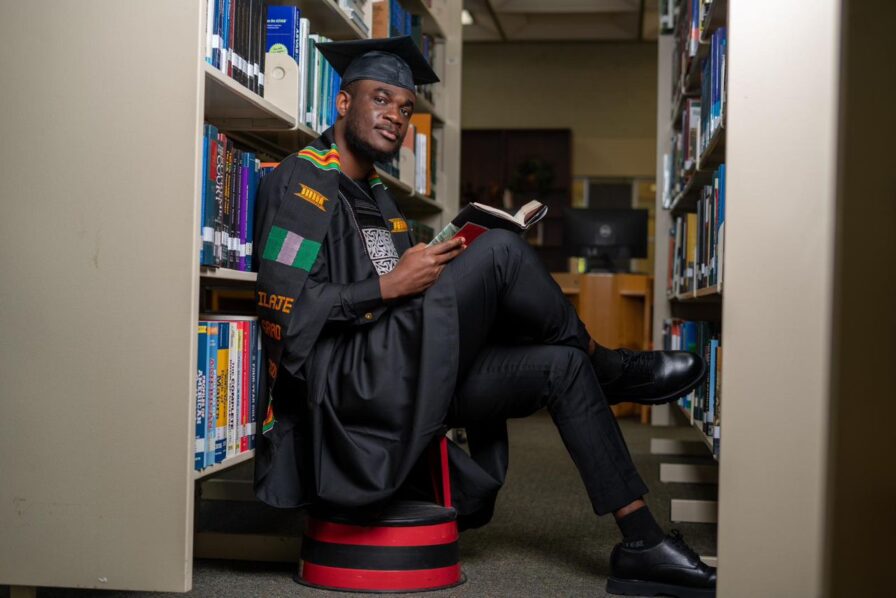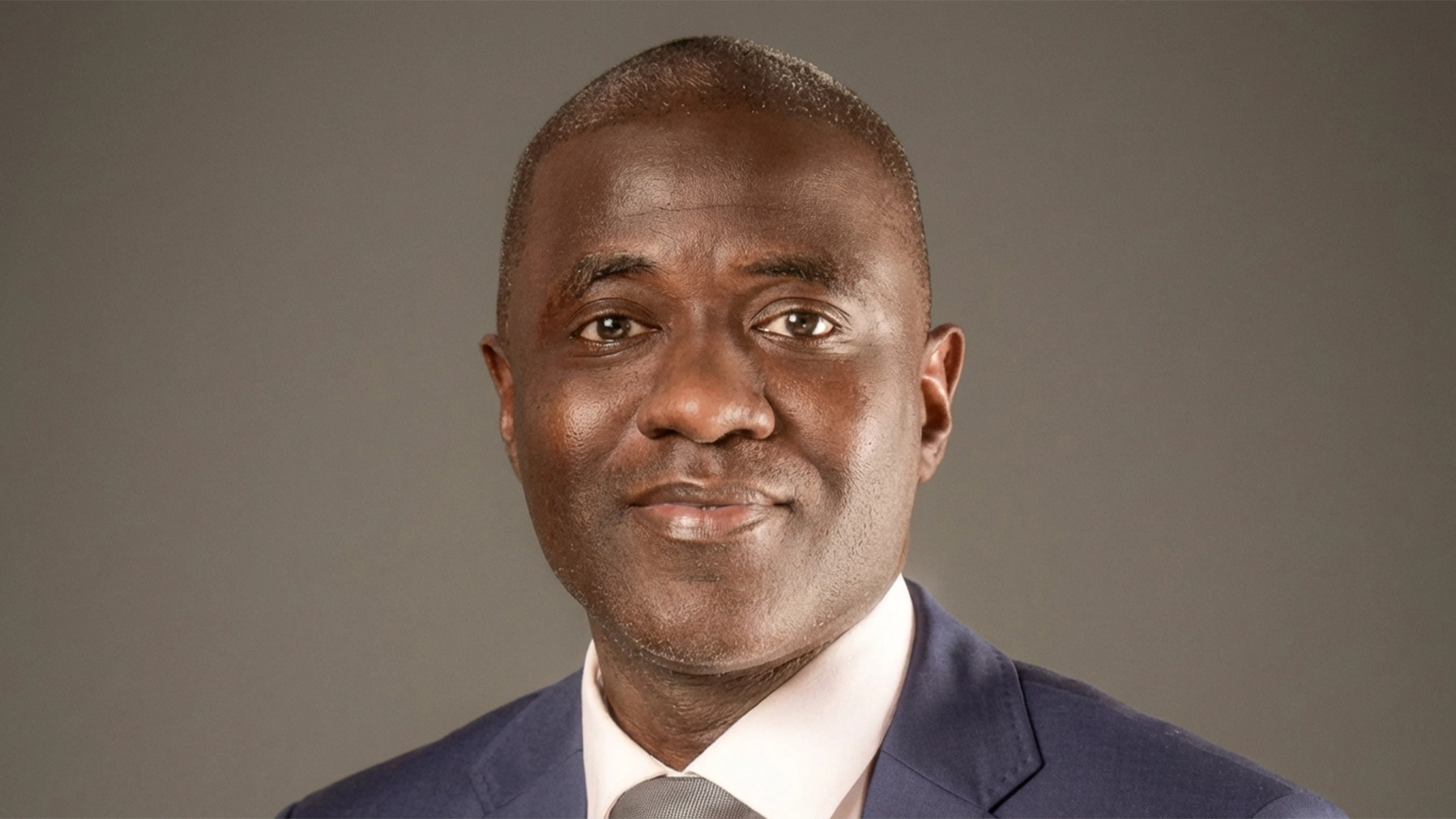
Nigerian product manager, Adeleye Oriola Mesogboriwon, together with his team, came third in the Kroger Zero Hunger Zero Waste Challenge. In this interview, he discusses his team’s innovative approach to promoting healthier lifestyle choices and sustainability
Could you introduce yourself and tell us a little about your role in the Kroger Zero Hunger Zero Waste Challenge?
Yes, my name is Adeleye Oriola Mesogboriwon. I am a product manager, with a strong focus on product design and innovation. I was the team leader for our group that participated in the Kroger Zero Hunger Zero Waste Challenge within the Metaverse, where we achieved third place.
What motivated you and your team to participate in the Kroger Zero Hunger Zero Waste Challenge?
My teammates and I were able to participate in this competition as Metascholars. To be eligible, you had to submit an application, including essays and your CV, to the Thurgood Marshall College Fund. We were selected as part of the top 25 candidates from over a thousand applicants. After being selected as a Metascholar, I had to go through the rigorous process of making it into the top 5 at the end of the programme, which then made me eligible to take part in the competition. This process included completing various tasks within the Metaverse. Furthermore, while other teams were competing in person in Cleveland, Ohio, we delivered our pitch from the Metaverse. What truly motivated us and kept our drive alive throughout this rigorous process was our passion for using technology to bring about change in our community and the world at large.
Can you describe the project you presented at the challenge?
Certainly. Our project prompt was, “What can Kroger do to encourage healthier choices and be a leader in the Food as Medicine concept?”. Our approach was twofold and revolved around a brand character we created named “Veggie.” The first part involved having “Veggie” placed in various aisles in-store, offering customers advice on what constitutes healthy eating and the importance of moderation. We weren’t suggesting that customers shouldn’t buy less healthy products, but rather advocating for moderation in all aspects of their diet. The second part of the project focused on reaching out to younger generations. We believe the best way to influence a healthier food choice in future generations is by educating them early. To do this, we proposed incorporating a game centred on healthy eating within Kroger’s current mobile app, with “Veggie” as the main character. The game would be engaging and fun for children, teaching them about healthy eating while allowing them to earn points that could be redeemed for healthy food in Kroger stores. I led the team’s ideation process and designed the app prototype to provide the judges with a real-time visualisation of how it would function once implemented.
What were some of the major challenges you faced during the competition, and how did you overcome them?
One of the main challenges was having to meet my teammates in the Metaverse. Although it was the most enjoyable part of the experience, it became quite exhausting as we had to meet at least three times a day during the competition week. For context, the Oculus Quest 2 headset is quite heavy and can blur your vision if it shifts slightly. Each meeting lasted for at least two hours, meaning I was spending a minimum of six hours daily wearing the headset. Another challenge we faced was justifying the decision to target the app’s “Veggie” feature towards children, even though they aren’t typically the ones shopping for groceries. From a business perspective, Kroger would naturally want to increase revenue, and “Veggie” wouldn’t provide an immediate financial return. We had to conduct a thorough analysis to highlight the long-term benefits Kroger could gain from this investment.
How did your team collaborate to bring this project to life?
The key factors in our success were our willingness, hunger for success, and belief that we could win. Everyone was fully committed and did their part without the need for constant reminders, which made the process much smoother. Collaboration was seamless because we had already built trust during the Metascholars programme, where we had completed several team tasks together.
What impact do you believe your project can have on reducing hunger and waste?
Our initiative aims to instil sustainable habits early on, particularly in terms of reducing waste and promoting nutritional education. By engaging children, “Veggie” helps develop a mindset that focuses on personal health and environmental sustainability. Early education like this is crucial, as it lays the foundation for responsible consumption patterns, which can significantly reduce food waste and improve nutrition in communities.
Moving on to another impressive initiative, could you tell us about HBCUGPT? What inspired its creation?
HBCUGPT is a generative AI that I built using the ChatGPT framework. Its purpose is to provide career advice, scholarship opportunities, and internship placements for students attending Historically Black Colleges and Universities (HBCUs). During my time as an international undergraduate student, I was able to access many opportunities, and I noticed that many local students didn’t receive the same opportunities. Upon further investigation, I realised that the issue wasn’t a lack of intelligence but rather a lack of information. The more students are informed about these opportunities, the more they can take advantage of them and elevate their own prospects.
What role did you play in developing HBCUGPT, and what are some of its key features?
I developed HBCUGPT entirely on my own. One of the key features I focused on was personalisation. Before HBCUGPT provides any responses, it asks for details such as your major, classification, GPA, and other relevant information to ensure that the advice it provides is tailored to your needs. This way, the AI avoids giving generic responses and instead suggests opportunities that are specific to the user’s profile.
How has HBCUGPT been received by the community, and what are its long-term goals?
The response has been very positive so far, and more and more students are starting to use it. My plan is to continue promoting it so that every HBCU student eventually uses it. The long-term goal is for HBCUGPT to be adopted by all HBCU students, but to achieve that, I need to keep feeding it more data to improve its efficiency. So, moving forward, a lot of my work will involve gathering more data to enhance the tool.
What challenges did you face while creating HBCUGPT, and how did you address them?
The main challenges were gathering data and learning how GPT models work in the first place. I spent a lot of time researching online, and as I progressed, things became clearer. It was difficult because generative AI is still relatively new, and there aren’t many beginner-friendly resources available. Nevertheless, I overcame these challenges by reading extensively and continuing to learn.






